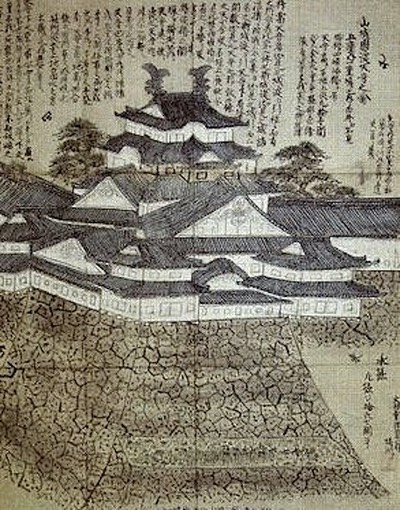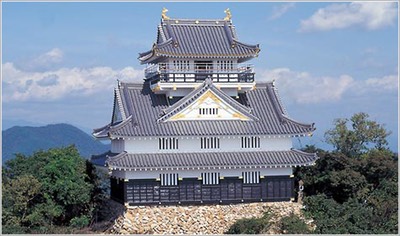Writing his life’s work, the Book of Rive Rings, in old age, Musashi did not touch on the battles in which he had participated during his active military career, preferring to limit himself to the statement that he had engaged in more than sixty duels by the time he had reached the age of twenty-nine. However, we do know that Musashi spent a lot of life on the field of battle, for in a letter to Sakazaki Naizen, Hosokawa Tadatoshi’s head of pages, he clearly states that:
若年より軍場へ出候事以上六度にて、其内四度は、其場におゐて拙者より先ヲ懸候者、一人も無之候。其段はあまねく何も存知之事にて、尤證據も有之候。乍然此儀は以全く身上之申立に仕にては無之候。
From a young age I have, in all, gone into battle some six times, four times out of which I was in the absolute vanguard. This is widely known, and of course there is also proof of it. However, it is not at all with a view to advance my social position that I mention this.
Sadly, today, though it is indeed widely known, much of the proof that undoubtedly existed in Musashi’s day, has been covered by the dust of time. Nevertheless, since it has been established that Musashi took part in the the siege of Tomiku castle, the siege of Osaka castle, and the suppression of the Shimabara Rebellion, it follows that—if he is right in his claim (and there is no reason to believe he is not)—Musashi participated in three more battles. The question, then, that remains is: in what other three battles did Musashi participate?
And since the siege of Tomiku castle was only part of a much larger campaign, involving a string of sieges and pitched battles, it is very possible that the three remaining battles in which Musashi had fought were three of the many battles that were part of Kuroda Yoshitaka’s campaign to bring Kyushu under Tokugawa control. If so, it was very much in the course of these fierce battles over a period of many months that the young Musashi was able to hone the fighting skills he had learned from his father in Miyamoto and his uncle Dōrin in his small temple near Hirafuku village.
Another scenario is that Musashi fought his remaining three battles under Mizuno Katsunari. Since Musashi served under Katsunari during the summer campaign of Osaka castle, it is quite possible, almost logical, that Musashi should also have fought under Katsunari during the winter campaign. And why should he not have also taken part in Katsunari’s assault on the castles of Gifu and Ōgaki in the run-up to the Battle of Sekigahara (1600)? Indeed, there is good reason to believe that the Bukōden is referring to just that when mention the siege of Gifu castle in connection to Musashi.
If Masanaga is indeed suggesting that Musashi fought under Katsunari in the siege of Gifu (and Ōgaki?) castle, he leaves us with amother conundrum. For in the same passage he mentions the siege of Fushimi castle, which, after all, was besieged by the western forces. In other words, if Musashi did indeed participate in the siege of Fushimi castle, as well as the siege of Gifu castle, he would have had to change sides within the space of only one month, which would have made him a bit of a turncoat, to say the least. Such behavior, though not uncommon in his time, simply does not fit Musashi’s temperament, nor does it sit well with the long string of Musashi’s Patrons, all of whom were staunch Tokugawa supporters.
Interestingly, the wording of the Bukōden, which merely states that Musashi “stood on Fushimi castle” (Fushimi-jō wo fumu), might be constructed to mean that Musashi was part of the Mototada’s defending force. However, the castle fell in the attack, and Mototada and many of his men were killed. Musashi, then, must have been one of the few lucky ones to escape with his skin. This, in itself, is not impossible, but one would at least expect one mention of such a feat by the many chroniclers of his day.
The truth, of course, is that we do not know. As long as we remain deprived of vital sources like the Osaka o-jin no otomo and the Osaka o-jin o-ninzu tsukeoboe, we simply cannot establish in what remaining battles Musashi participated and what his exact role was. What is certain is that, very much like his duels, he had fought most of his battles (with sole the exception of the Shimabara Rebellion) by the age of thirty-one (1615), for by then Japan had been fully pacified.
Any queries of remarks? Launch or join a discussion at our new FORUM

